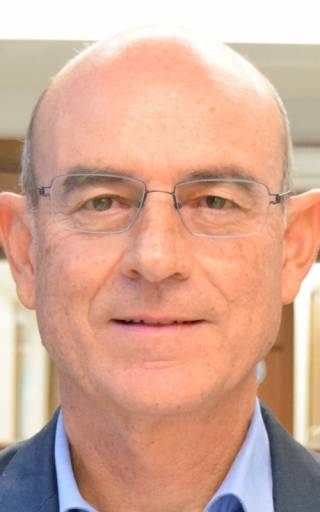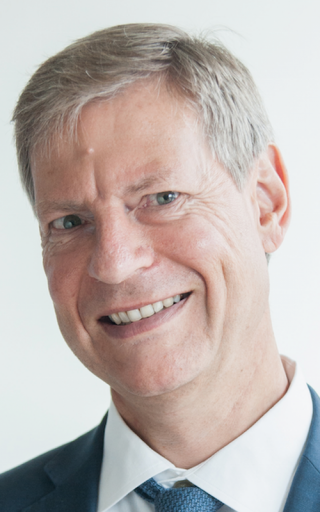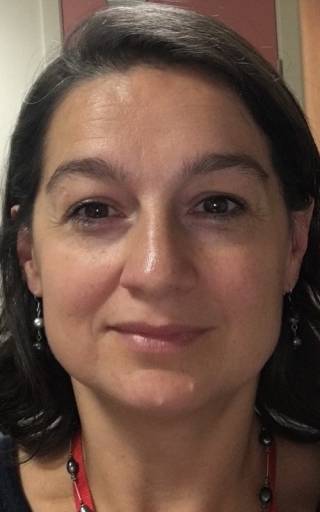Participation site: UCL Great Ormond Street Institute of Child Health (UCL GOS-ICH) and the Developmental Neuroscience Research and Teaching Department, Dubowitz Neuromuscular Centre
ICGNMD investigators, co-investigators, fellows and key staff:
Professor Francesco Muntoni, ICGNMD Co-Director

I am a clinician scientist interested in deep phenotyping of individuals affected by neuromuscular disorders, and in translational research, spanning preclinical work, natural history studies and phase I-III clinical trials in children affected by a variety of neuromuscular disorders.
In this project my role is to provide input on paediatric cases affected by neuromuscular diseases. My closer research interests are congenital myopathies and congenital muscular dystrophies.
Professor Thomas Voit, ICGNMD Co-investigator

I have a long-standing interest in the genetics of neuromuscular diseases, with a particular interest in muscular dystrophies. This includes general phenotype-genotype correlations but also organ-specific manifestations such as cardiomyopathy in Duchenne and Becker muscular dystrophy or in Emery-Dreifus muscular dystrophy. I am also interested in more complex genetic regulations such as changes leading to FSHD. My strongest research interest is to develop translational therapy approaches for NMDs, which are based on understanding of the gene, its regulation, and molecular approaches such as AAV-based gene therapy, shRNA, or antisense-based therapy.
Doctor Anna Sarkozy, ICGNMD Co-Investigator

Member of the research team at Dubowitz Neuromuscular Centre, Institute of Child Health, Great Ormond Street Hospital London, led by Prof Muntoni. Co-supervisor of UK and international fellows (South Africa, Turkey)
-New gene discovery in particular for congenital muscular dystrophies/myopathies
-Genotype-phenotype correlations
-natural history of rare neuromuscular conditions
- Clinical neuromuscular expertise, patients and geographical region:
With its clinical partner Great Ormond Street Hospital for Children (GOSH), the UCL GOS Institute of Child Health forms the largest concentration of child health research outside North America. The Dubowitz Neuromuscular Centre (DNC) and GOSH the largest paediatric neuromuscular centre in the UK, assessing over 1,600 children every year. It is a combined clinical and research centre specialising in paediatric neuromuscular disorders, providing clinical assessment, diagnostic services and advice on treatment and rehabilitation. The DNC delivers a UK-wide National Highly Specialised Service for the diagnosis and assessment of congenital muscular dystrophies and congenital myopathies and is a designated Muscular Dystrophy Campaign Muscle Centre.
Extensive clinical trials link to basic research to understand causes, and develop therapies. The DNC’s seamless integration of translational research and clinical excellence is aided by specialist neuromuscular multidisciplinary teams. These include physiotherapists, speech and language therapists and specialists in dietetic and medical assessment, and link to joint specialist clinical with orthopaedic and spinal surgeons, respiratory and nerve specialists. Cross-UK links are reinforced through participation in the SMArtNet network for Spinal Muscular Atrophy and the North Star Project for Duchenne Muscular Dystrophy.
Great Ormond Street teams work closely with adult neuromuscular disease specialists at the geographically adjacent UCL Queen Square Institute of Neurology to ensure a smooth transition of care from paediatric to adult services and to deliver effective research collaborations.
- Genetics and science expertise and facilities:
UCL GOS-ICH research covers all aspects of health, with neuromuscular expertise centred in the Developmental Neurosciences Research and Teaching Department. The DNC has a particularly strong research interest in the causes and treatment of muscular dystrophies and other NMDs in children. This encompasses molecular, cellular and clinical research, linking through to functional genetics, stem cell studies, in addition to the development of experimental therapies for Duchenne muscular dystrophy. A full range of relevant facilities is available, including via advanced muscle biopsy and nerve pathology services. With UCL Queen Square Institute of Neurology, UCL GOS-ICH co-hosts the MRC CNMD BioBank London, a nationally-important research resource containing samples from patients with confirmed or suspected neuromuscular disorders.
- Current research programmes:
Professor Francesco Muntoni is Director of the Dubowitz Neuromuscular Centre (DNC). He is a paediatric neurologist whose research is focused on understanding the genetic basis and therapeutic interventions of muscular dystrophies and congenital myopathies. Professor Muntoni is also the Program Director for the Developmental Neuroscience Research Programme at ICH and Theme lead for Novel Therapies in the ICG/GOSH Biomedical Research Centre, in addition to his ICGNMD Co-Directorship. He has authored over 400 peer reviewed manuscripts and has continues to receive extensive funding from the MRC, Wellcome Trust, The European Commission and a range of national and international charities.
Dr Anna Sarkozy is a consultant in neuromuscular disorders working at the DNC with Prof Muntoni. She is a clinical geneticist by training and has focused her clinical and research interest on understanding the genetic basis of rare neuromuscular conditions and describing their phenotypic spectrums. She has authored 100 peer reviewed manuscripts and collaborates in a number of research grants, led by Prof Muntoni, focused on the identification of novel genes responsible for congenital muscular dystrophies and myopathies.
Dr Jennifer Morgan’s research is focused on understanding the biology of skeletal muscle, particularly identifying the cell types contributing to muscle regeneration and the manipulation of cells to enhance muscle repair and regeneration.
- Top five publications from the past five years:
1. Sarkozy A, Torelli S, Mein R, Henderson M, Phadke R, Feng L, Sewry C, Ala P, Yau M, Bertoli M, Willis T, Hammans S, Manzur A, Sframeli M, Norwood F, Rakowicz W, Radunovic A, Vaidya SS, Parton M, Walker M, Marino S, Offiah C, Farrugia ME, Mamutse G, Marini-Bettolo C, Wraige E, Beeson D, Lochmüller H, Straub V, Bushby K, Barresi R, Muntoni F. Mobility shift of beta-dystroglycan as a marker of GMPPB gene-related muscular dystrophy. Neurol Neurosurg Psychiatry. 2018 Jul;89(7):762-768
2. Sframeli M, Sarkozy A, Bertoli M, Astrea G, Hudson J, Scoto M, Mein R, Yau M, Phadke R, Feng L, Sewry C, Fen ANS, Longman C, McCullagh G, Straub V, Robb S, Manzur A, Bushby K, Muntoni F. Congenital muscular dystrophies in the UK population: Clinical and molecular spectrum of a large cohort diagnosed over a 12-year period. Neuromuscul Disord. 2017;27(9):793-803
3. Jennifer E. Morgan, Alexandre Prola, Virginie Mariot, Veronica Pini, Jinhong Meng, Christophe Hourde, Julie Dumonceaux, Francesco Conti, Frederic Relaix, Francois-Jerôme Authier, Laurent Tiret, Francesco Muntoni, Maximilien Bencze (2018). Necroptosis mediates myofibre death in dystrophin-deficient mice. Nature Communications 2018 Sep 7;9(1):3655. doi: 10.1038/s41467-018-06057-9.
4. Jinhong Meng, Francesco Muntoni and Jennifer Morgan (2018). CD133+ cells derived from skeletal muscles of Duchenne muscular dystrophy patients have a compromised myogenic and muscle regenerative capability. Stem Cell Research 30 (2018): 43-52.
5. Pietro Spitali, Irina Zaharieva, Stefan Bohringer, Monika Hiller, Amina Chaouch, Andreas Roos, Chiara Scotton, Mireille Claustres, Luca Bello, Craig M. McDonald, Eric P. Hoffman, CINRG Investigators, Zaida Koeks, H. Eka Suchiman, Sebahattin Cirak, Mariacristina Scoto, Mojgan Reza, Peter A. C. ‘t Hoen, Erik H. Niks, Sylvie Tuffery-Giraud, Hanns Lochmüller, Alessandra Ferlini, Francesco Muntoni & Annemieke Aartsma-Rus. TCTEX1D1 is a genetic modifier of disease progression in Duchenne muscular dystrophy. Eur J Hum Genet 28, 815–825 (2020). https://doi.org/10.1038/s41431-019-0563-6
 Close
Close

